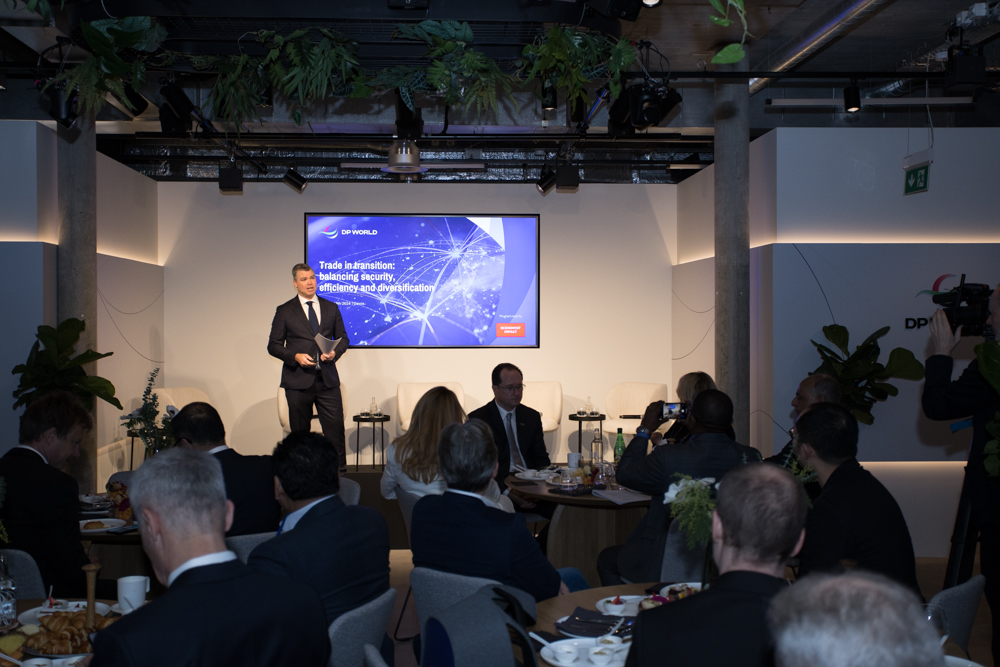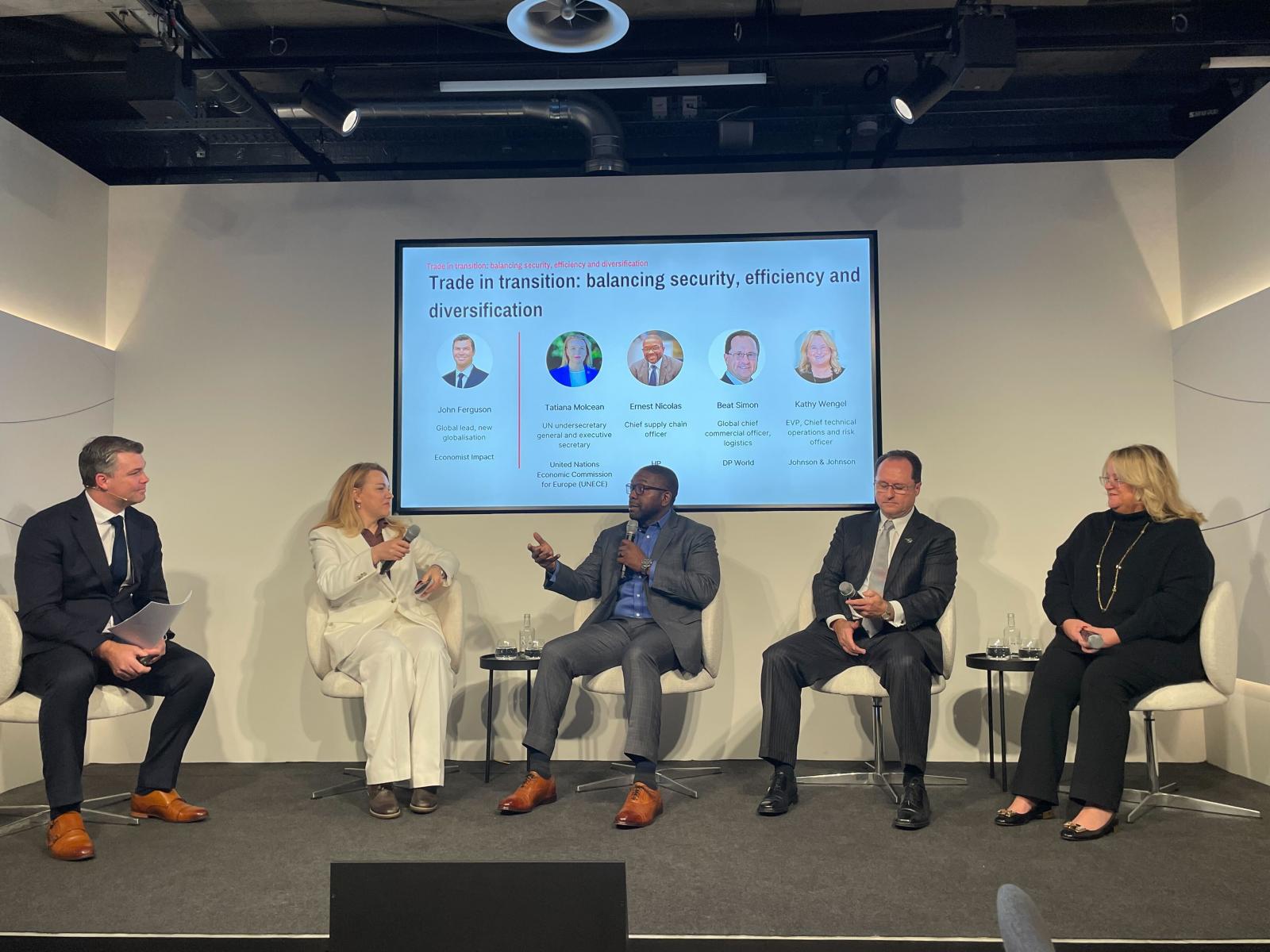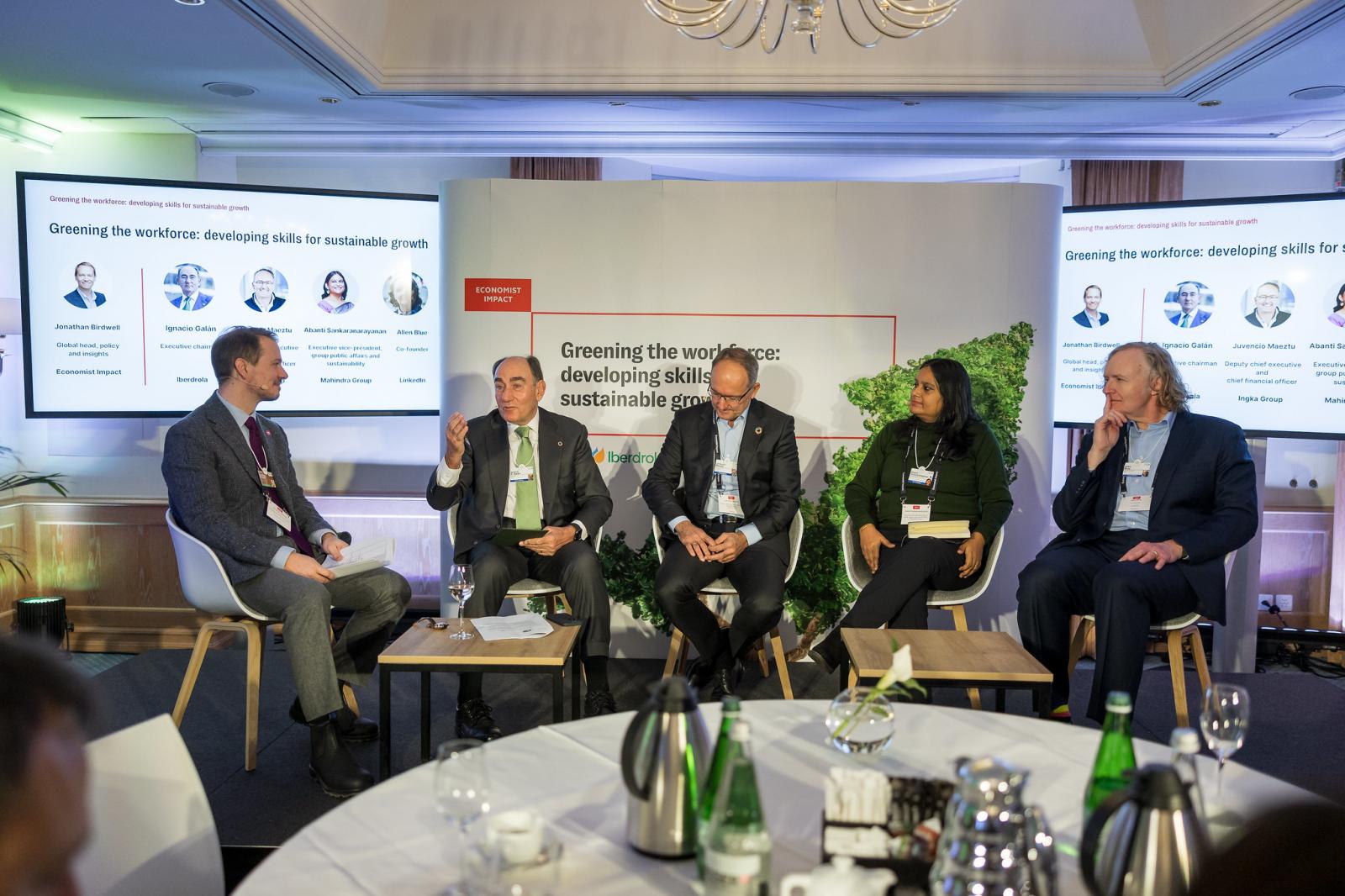Rebuilding trust was the central theme of this year’s World Economic Forum, but a lack of trust in the global system permeated the event. With daily reminders of global conflicts, the geopolitical background drove a focus on resilience among business leaders. Politics also added to the uncertainty. Many speakers addressed the “year of democracy” as over 70 countries hold elections in 2024. And whether it’s one of those Davos lines delivered for effect or a sincere belief, it was often said that only one election truly mattered—the one in the US.
There was also cause for optimism at Davos this year—generative artificial intelligence (gen AI), which was discussed in almost every meeting, panel and casual conversation. The takeaway? Gen AI’s revolutionary impact is certain, but what exactly that impact looks like is unclear. There is still much we do not know about the effects of gen AI. Even for those at the forefront of this technology, questions remain about the pace of adoption, regulatory requirements, and the impact on jobs, growth and emerging markets. Whether or not this uncertainty is a cause for concern, it felt like an honest and humble admission that even these tech gods are not omniscient.
We must keep talking about gen AI. Businesses are still experimenting with it, which makes it the perfect time to embed trust in its development. We know how to use the information we get from computers and the internet in a way that we trust. But we don’t know how to do that with gen AI. That will take a paradigm shift. At the very least, Davos 24 was a step in the right direction.
Launch of DP World - Trade in Transition 2024
Every global issue affects supply chains and trade. That was the key message at our launch of the Trade in Transition programme at Davos. Now in its fourth year, it paints a detailed picture of how the private sector navigates a complex global system. Executives are diversifying supply chains while simultaneously working with fewer suppliers. They are optimistic about trade in 2024—and technology is the primary source of this optimism. But our report also came with a warning. As geopolitical concerns drive companies to engage in friendshoring (shifting supply chains to friendlier countries), there is a real risk of fragmentation. Our modelling suggests that fragmentation along geopolitical boundaries could see an almost 1% decline in the global economy in the short term, with price rises across many sectors.
Geopolitics is not the only challenge facing executives. Amid the need to build resilience, our panel of experts spoke about human rights, sustainability and consumer needs, all of which play a role in their strategies. With such complexity, our panellists expressed the need to build relationships and trust with stakeholders across their supply chain.
Global trade is in transition. As we reflect on our Davos launch, it is clear that this transition will continue for some time.
Iberdrola: Green Skills
Driving the transition to a more sustainable future
Businesses are transforming how they operate to meet net-zero goals. To do this they need a range of technical and soft skills. LinkedIn data show that demand for “green skills” is soaring, with supply struggling to keep pace. Without further investment, this skills gap will undermine the green transition.
In Davos last week we launched new research, supported by Iberdrola, exploring the outlook for green skills. While three-quarters of business leaders agree that green skills will be the most important driver of the green transition, just half are implementing upskilling/reskilling programmes. And despite projections of a net gain in jobs created by the energy transition, some communities and workers will lose out. Support for these communities, with affordable and high-quality reskilling and upskilling opportunities, will be critical for a just transition.
Some companies are stepping up to meet this challenge. At our event the leaders of Iberdrola, Ingka Group (which owns IKEA), Mahindra Group and LinkedIn highlighted the work that they are doing to reskill their employees. But it’s not just technicians who need retraining. C-suite leaders need skills in environmental awareness, communication and change management. And it’s not just green industries like renewable energy—all industries will need to develop cross-sector skills around compliance and soft skills like innovation and creativity. Businesses, governments, educational institutions, and workers and trade unions will all have a critical role to play.
Navigating the New World Disorder: an exclusive conversation with Bill Gates and Infosys chairman and co-founder Nandan Nilekani, moderated by The Economist editor-in-chief Zanny Minton Beddoes
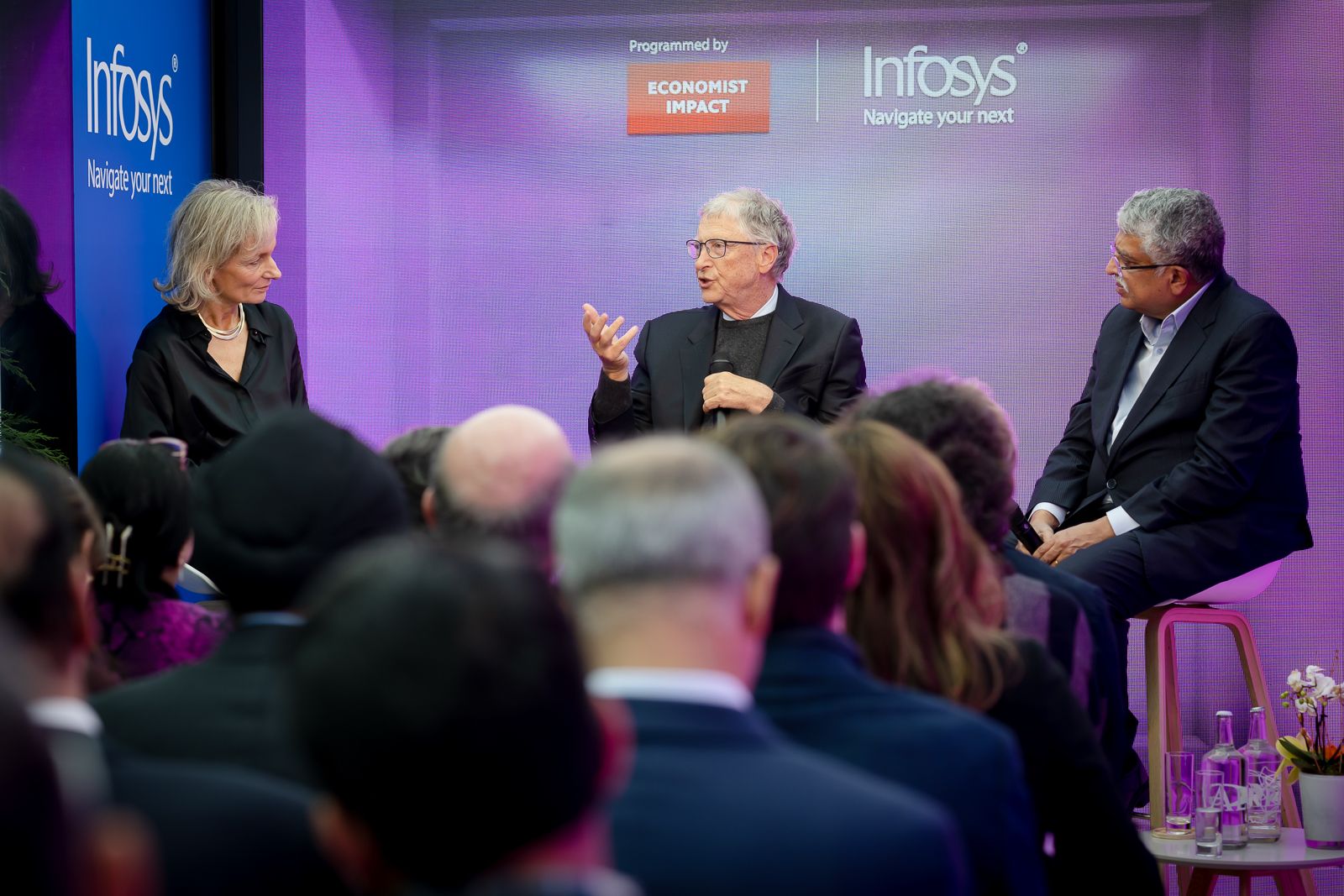
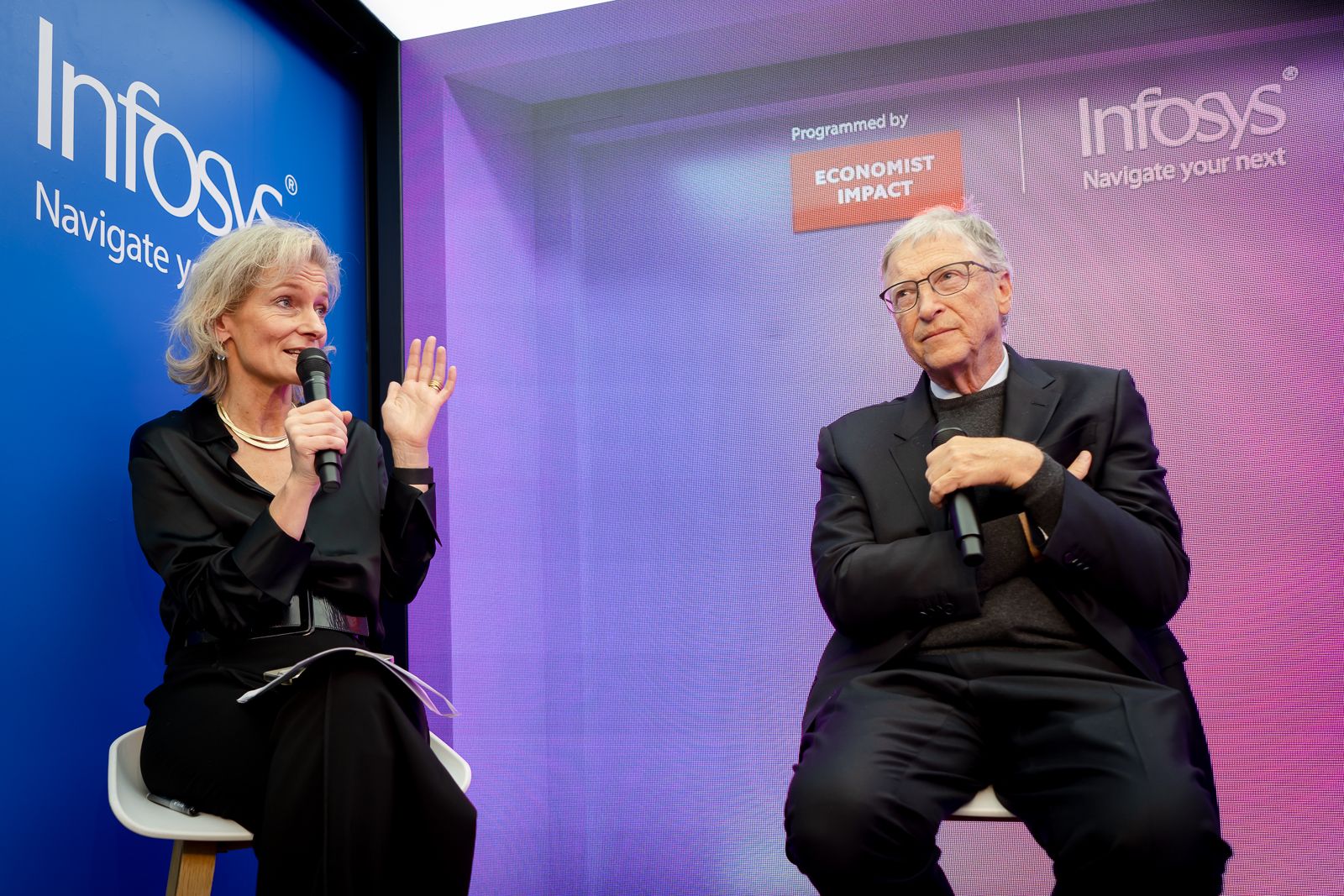
One of Economist Impact’s Davos 2024 highlights was our event “Navigating the New World Disorder” at the Infosys pavilion, featuring Bill Gates and Infosys chairman and co-founder Nandan Nilekani, moderated by The Economist’s editor-in-chief, Zanny Minton Beddoes. While the audience inside was dominated by CEOs, the discussion also drew a large crowd of onlookers taking pictures of the well-known panellists from the Promenade’s streets. The discussion focused on predictions for the US and Indian elections, the benefits that AI will bring to rural farmers and communities in India, and the extraordinary productivity gains that we will see as a result of AI.
Two insights stand out: first, how AI will remove the English-language premium—making it easier for people to learn English and giving them tools for fast and effective translation into and from any language. Second, there was frequent mention of the “lump of labour” fallacy, and a belief that while we may struggle at this point to imagine the new jobs that AI will create, it surely will give rise to new industries and employment. We also heard how the productivity gains from AI could lead to shorter working weeks, and that we will need to readjust our notions of what a good life means. We’ve spent our existence searching for food, safety and then in strenuous labour.
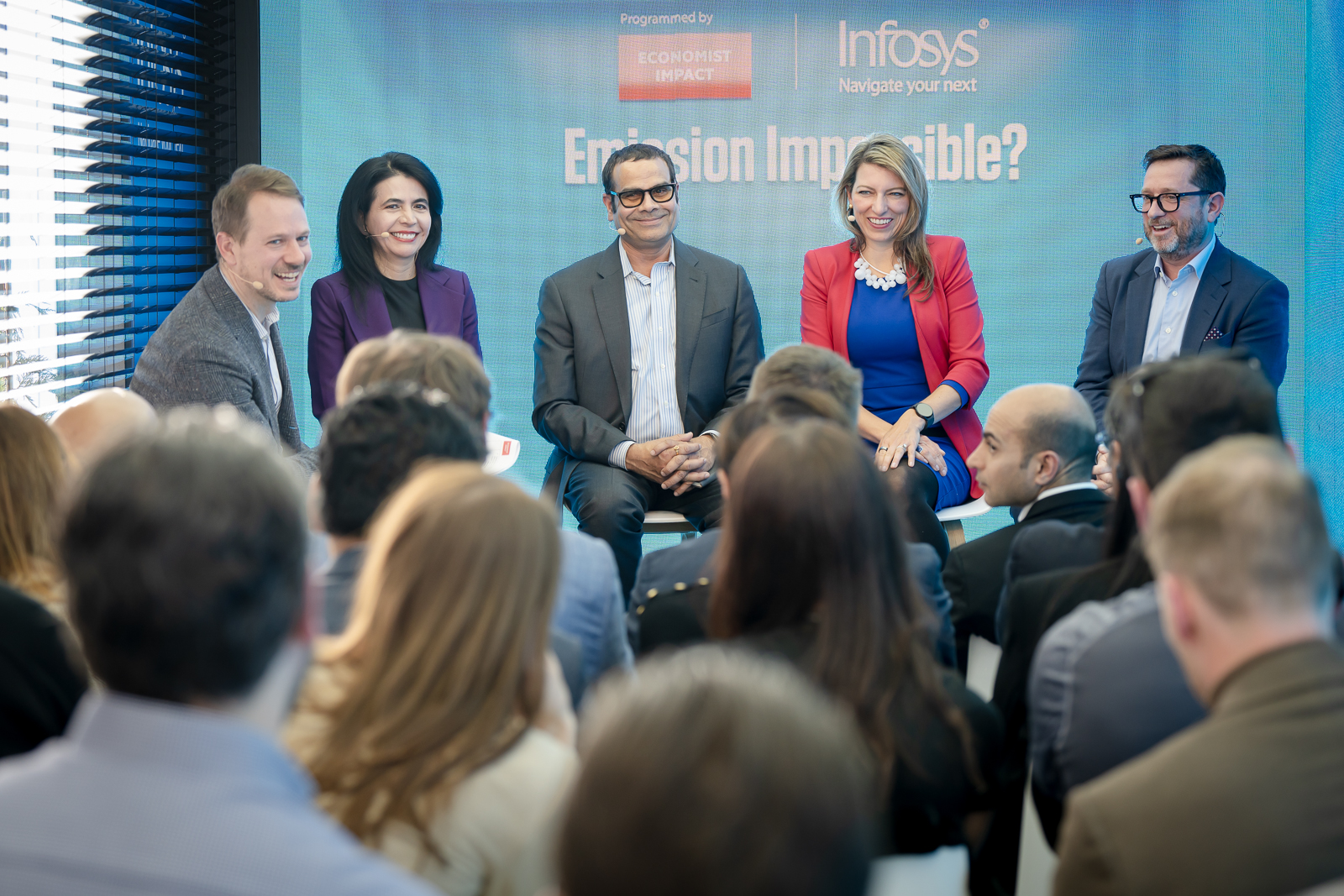
You can also catch up our session Emission Impossible: Decarbonising business models for future growth featuring insights from Pilar Cruz, chief sustainability officer, Cargill, Ashiss Kumar Dash, executive vice-president and global head services, utilities, resources and energy, Infosys, Daniella Foster, senior vice president and global head of public affairs, science and sustainability, Bayer, Joachim Rosenberg, executive vice-president, strategic initiatives, Volvo Group and moderated by Jonathan Birdwell, global head–policy and insights, Economist Impact.
Overall, Davos 24 was encouraging. At a time of increased fragmentation, escalating conflicts and the impacts of climate change, the attention of global business leaders and stakeholders is rightly pointed at progress amid uncertainty. Intentions clearly matter. Implementation, meanwhile, will be much harder. But that is always the challenge post-Davos.


